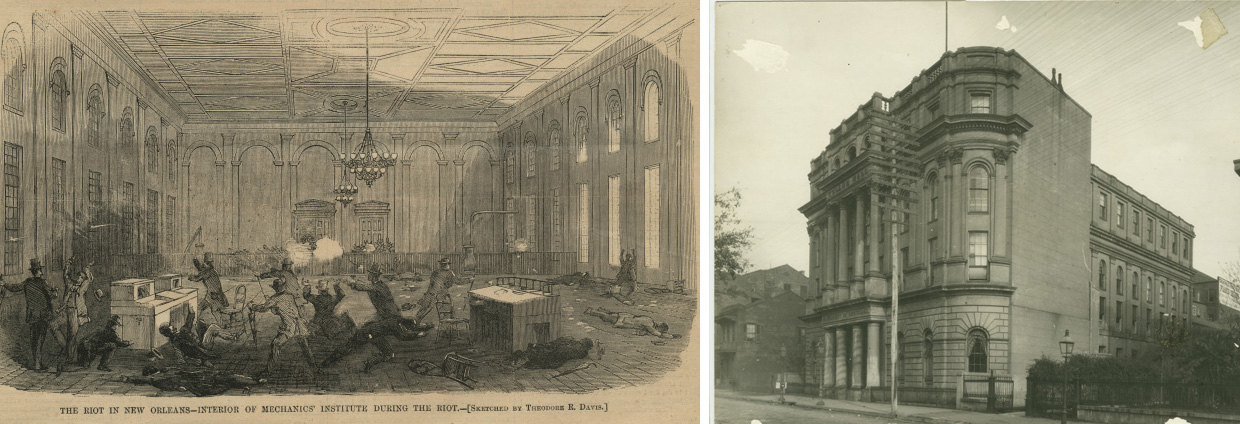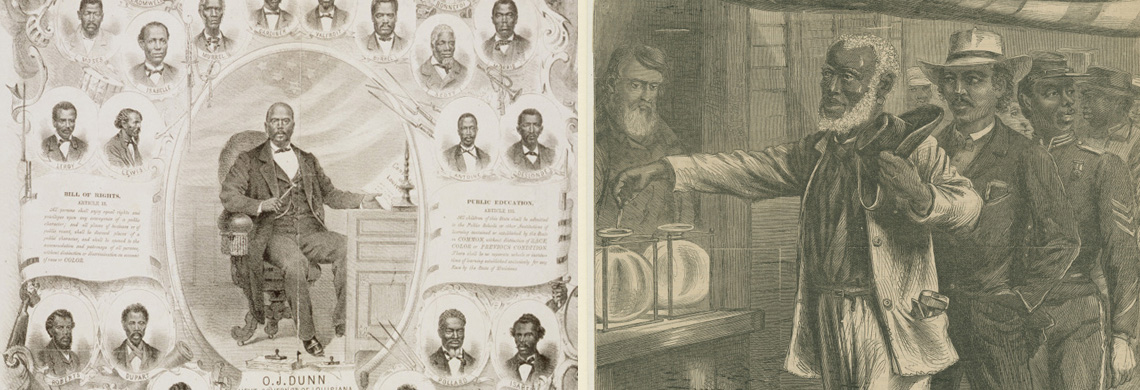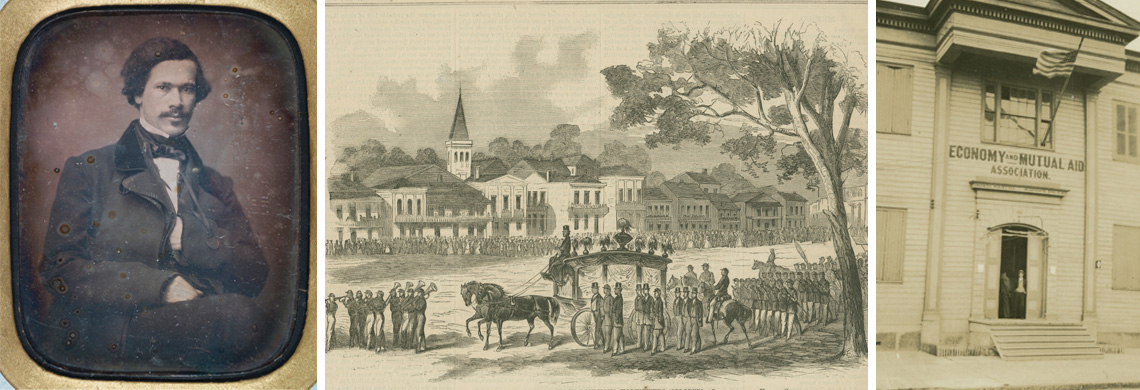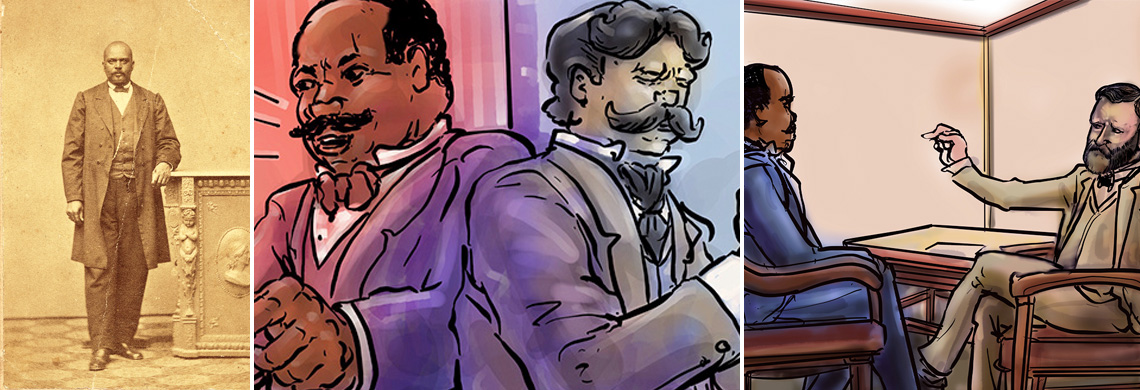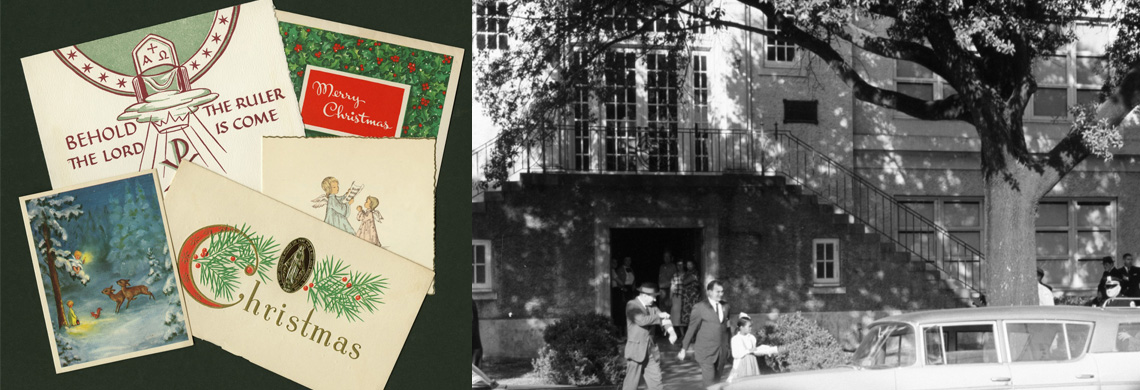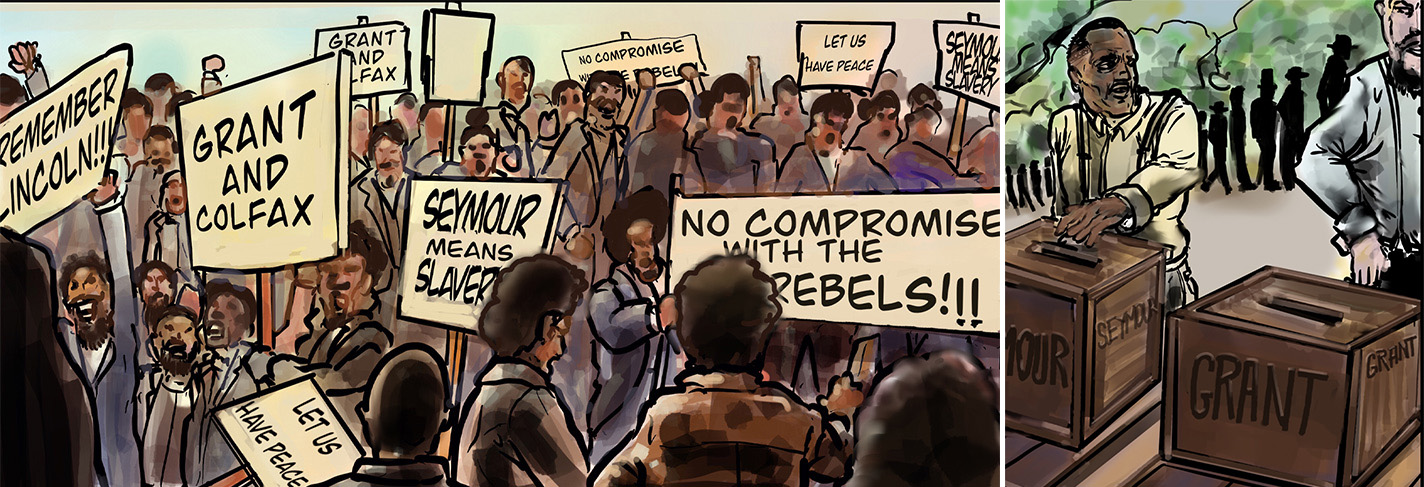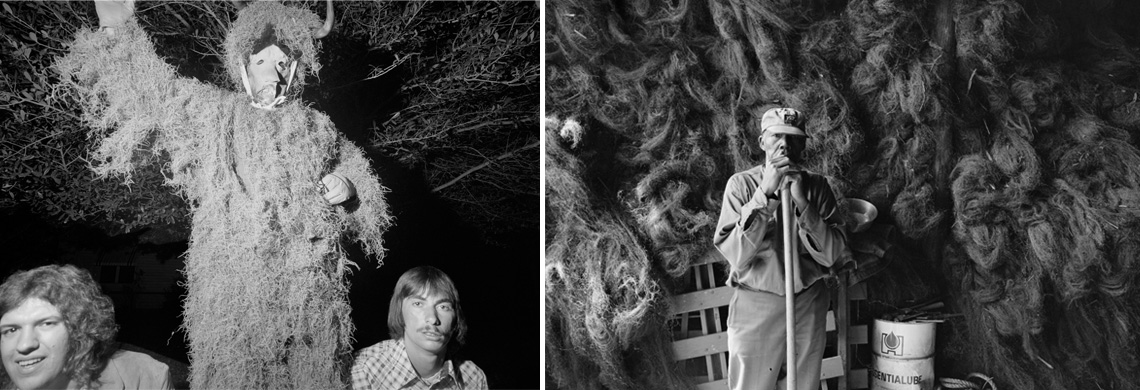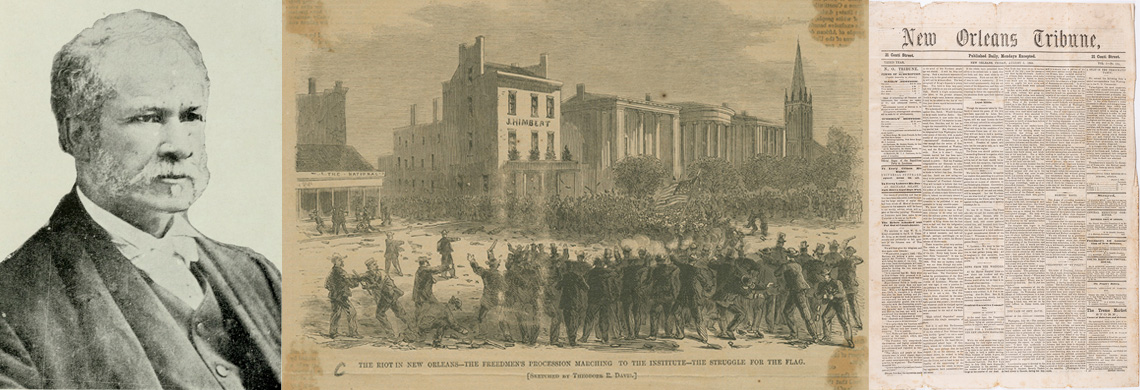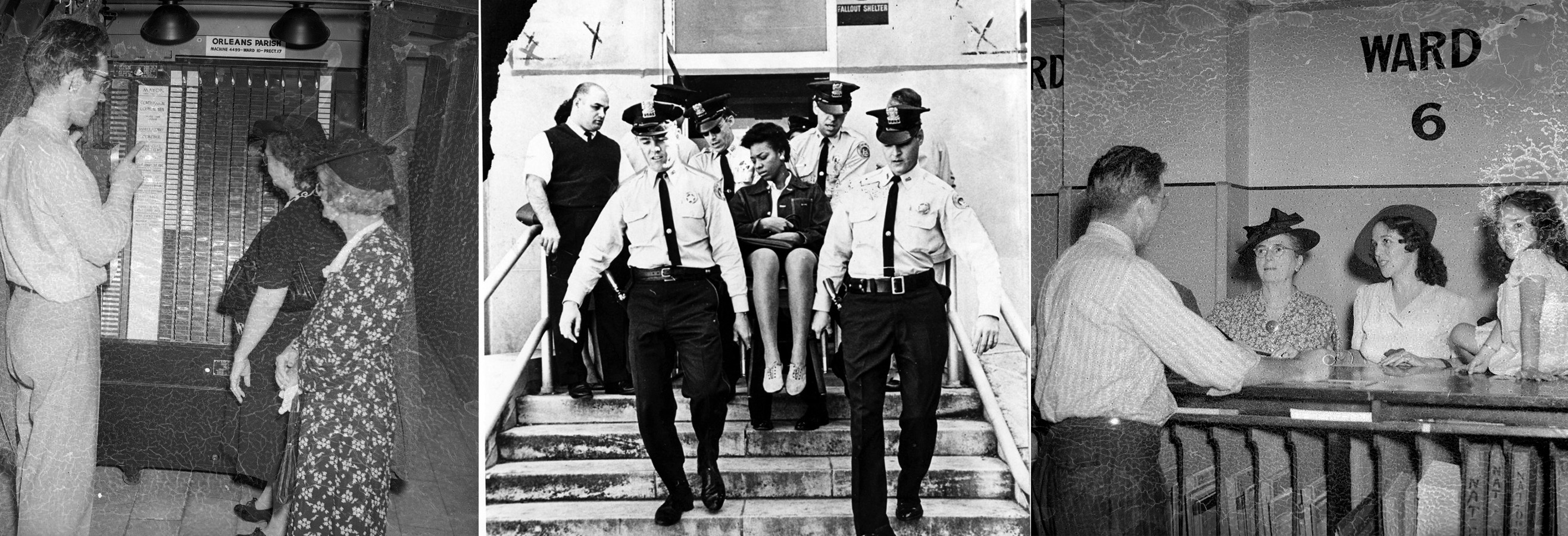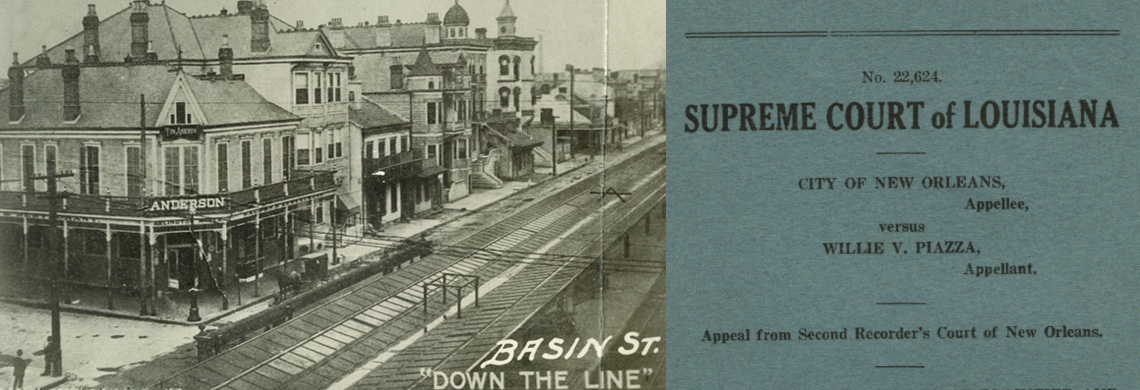Three new books from THNOC give different viewpoints of the infamous Mechanics' Institute massacre.
Local circumstances—and tragedies—shaped Black New Orleanians’ successful struggle for the vote, but their fight had far-reaching consequences.
After the Union liberated New Orleans, Black activists fought for civil liberties and basic human rights.
150 years before Kamala Harris was inaugurated as the nation's first Black vice president, newspapers speculated that Louisianan Oscar J. Dunn could be up for the job.
On November 14, 1960, four six-year-old girls in New Orleans became pioneers in the national civil rights movement. While they were confronted by mobs of protestors in their own neighborhoods, well-wishers from across the country sent cards of encouragement.
In the first presidential election after the Civil War, violence and voter suppression prevented Black voters from exercising their right.
What do we mean when we talk about Cajun Country? The answers are tied up in race, class, language, and, of course, history.
Amid the American Civil War, a new civil rights movement was forming in New Orleans—in French.
Often, the story of women’s suffrage ends at the ratification of the 19th Amendment. Yet, for many women in the South, the fight did not end there.
When the City of New Orleans passed an ordinance to remove black prostitutes from Storyville, Willie Piazza fought back. Her challenge to segregation was an early, though fleeting, victory against Jim Crow.


